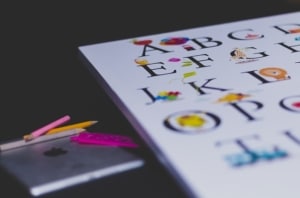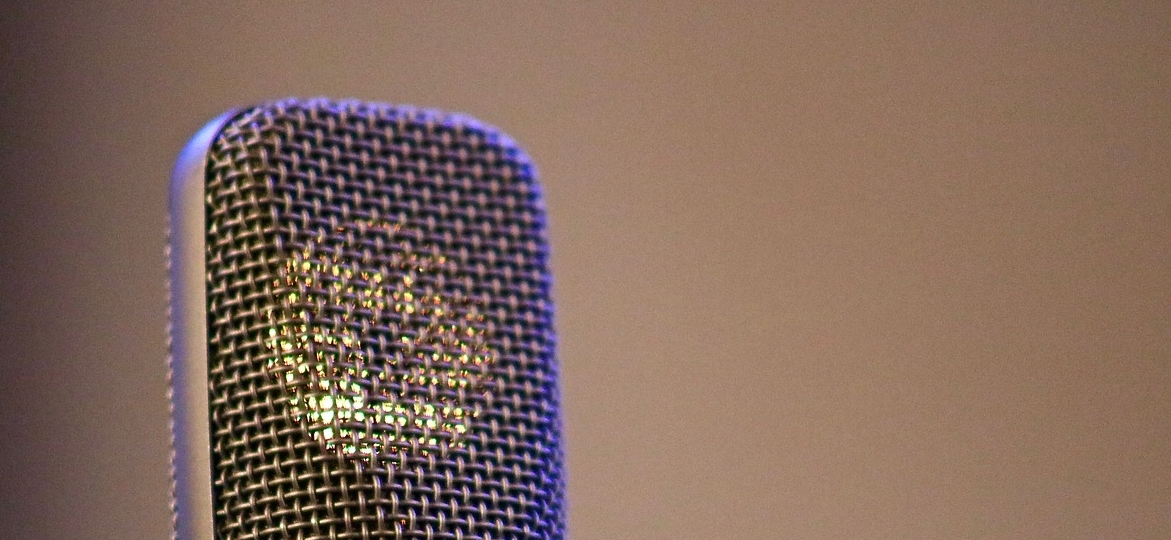One of the most basic features of any language is its alphabet. And every single alphabet is different from another, whether it is in its written form or in its pronunciation. When it comes to learning the French alphabet, it may be easier for occidental people because it is very similar to a lot of other languages. Only the pronunciation is different and you don’t have to learn a whole new alphabet like it would be the case when learning Russian or Japanese, for example. In today’s new post, we will teach you all there is to know about the French alphabet:
- Why should you learn the French alphabet and its pronunciation
- What is the French phonetic alphabet
- Where to find audio or video files to listen to authentic French pronunciation
- Tips to memorise and remember the French alphabet.
- Learn French with General Français!
Now without further ado, let’s get into it!
Why should you learn the French alphabet and its pronunciation?
Before getting into practical stuff, let’s see the reasons why it is important to learn the alphabet. Well, if you want to learn French, learning the alphabet is the very first thing to do. It will help you with vocabulary words, grammar, spelling etc. Learning the French alphabet will help you a lot with pronunciation as well as with French accents. Focusing on the letters and their pronunciation will help you know how to correctly read in French and how to pronounce words easily. The more you master the pronunciation, the better your accent will be. French pronunciation is a lot linked to its alphabet so it is very important that you master it quickly.
On a daily life basis, learning the alphabet is important if you want to spell out your name to someone: to a receptionist for example. It is also very useful if you want to spell out your email or home address, find categories or products referenced with a letter. All these daily little things can be done effortlessly if you know the alphabet.

What is the French phonetic alphabet?
If we talk about the alphabet we also talk about pronunciation and sounds, so we must dive into the phonetic alphabet first.
French phonetics has four categories: consonants, semi-vowels, oral vowels and nasal vowels. Here they are.
Consonants
There are 20 consonant sounds in French:
| French Phonics letter | at the beginning of a word | in the middle of a word | at the end of a word |
|---|---|---|---|
| /b/ | beaucoup [boku] | début [déby] | tombe [tôːb] |
| /d/ | de [de] | idée [idé] | grande [ɡrâːd] |
| /f/ | femme [fam] | enfin [âfê] | neuf [nëːf] |
| /k/ | que [ke] | lequel [lekèl] | chaque [Sak] |
| /l/ | le [le] | celui [selÿi] | il [il] |
| /m/ | même [mèm] | famille [famij] | système [sistèm] |
| /n/ | nous [nu] | donner [dòné] | une [yn] |
| /p/ | peu [pö] | époque [épòk] | type [tip] |
| /s/ | si [si] | aussi [osi] | place [plas] |
| /t/ | temps [tâ] | était [étè] | toute [tut] |
| /v/ | vous [vu] | avec [avèk] | arrive [ariːv] |
| /z/ | zone [zoːn] | maison [mèzô] | quinze [kêːz] |
| /ɡ/ | gauche [ɡoːS] | également [éɡalmâ] | vague [vaɡ] |
| /N/ | - | gagner [ɡaNé] | ligne [liN] |
| /r/ | raison [rèzô] | sera [sera] | jour [Zuːr] |
| /S/ | chef [Sèf] | échapper [éSapé] | riche [riS] |
| /Z/ | jamais [Zamè] | déjà [déZa] | rouge [ruːZ] |
| /dZ/ | Djibouti [dZibuti] | budget [bydZè] | Cambodge [kâbòdZ] |
| /tS/ | tchèque [tSèk] | caoutchouc [kautSu] | match [matS] |
| /G/ | - | - | meeting [mitiG] |
Semi-vowels
There are 3 semi-vowel (a mix of a consonant and vowel sound, a bit like the “y” in English) in French:
| French Phonics letter | at the beginning of a word | in the middle of a word | at the end of a word |
|---|---|---|---|
| /j/ | hiérarchie [jérarSi] | Dieu [djö] | fille [fij] |
| /w/ | oui [wi] | loi [lwa] | - |
| /ÿ/ | huitième [ÿitjèm] | lui [lÿi] | - |
Oral vowels
There are 11 oral vowels (regular vowels) in French:
| French Phonics letter | at the beginning of a word | in the middle of a word | at the end of a word |
|---|---|---|---|
| a | année [ané] | travail [travaj] | moi [mwa] |
| é | été [été] | général [Zénéral] | vérité [vérité] |
| i | ici [isi] | ville [vil] | qui [ki] |
| o | aucune [okyn] | côté [koté] | nouveau [nuvo] |
| u | ouverte [uvèrt] | souvent [suvâ] | coup [ku] |
| y | unique [ynik] | étude [étyd] | pu [py] |
| ö | Europe [öròp] | deuxième [dözjèm] | lieu [ljö] |
| ë | œil [ëːj] | seul [sëːl] | - |
| ò | homme [òm] | comme [kòm] | - |
| e | - | besoin [bezwê] | ne [ne] |
| è | elle [èl] | nouvelle [nuvèl] | sujet [syZè] |
Nasal vowels
There are 3 nasal vowels (vowels pronounced in the back of the throat and nasalized, just like you would have in dancing) in French:
| French Phonics letter | at the beginning of a word | in the middle of a word | at the end of a word |
|---|---|---|---|
| â | ensuite [âsÿit] | exemple [èɡzâːpl] | seulement [sëlmâ] |
| ô | oncle [ôkl] | longtemps [lôtâ] | nom [nô] |
| ê | ainsi [êsi] | principe [prêsip] | loin [lwê] |
Diphthongs
| Vowel | Onset diphthong /j/ | Onset diphthong /ɥ/ | Onset diphthong /w/ | Example |
|---|---|---|---|---|
| /a/ | /ja/ | /ɥa/ | /wa/ | paillasse, Éluard, poire |
| /ɑ/ | /jɑ/ | /ɥɑ/ | /wɑ/ | acariâtre, tua, jouas |
| /ɑ̃/ | /jɑ̃/ | /ɥɑ̃/ | /wɑ̃/ | vaillant, exténuant, Assouan |
| /e/ | /je/ | /ɥe/ | /we/ | janvier, muer, jouer |
| /ɛ/ | /jɛ/ | /ɥɛ/ | /wɛ/ | lierre, duel, mouette |
| /ɛ̃/ | /jɛ̃/ | /ɥɛ̃/ | /wɛ̃/ | bien, juin, soin |
| /i/ | /ji/ | /ɥi/ | /wi/ | yin, huile, ouïr |
| /o/ | /jo/ | /ɥo/ | /wo/ | Millau, duo, status quo |
| /ɔ/ | /jɔ/ | /ɥɔ/ | /wɔ/ | Niort, quatuor, wok |
| /ɔ̃/ | /jɔ̃/ | /ɥɔ̃/ | /wɔ̃/ | lion, tuons, jouons |
| /ø/ | /jø/ | /ɥø/ | /wø/ | mieux, fructueux, boueux |
| /œ/ | /jœ/ | /ɥœ/ | /wœ/ | antérieur, sueur, loueur |
| /œ̃/ | - | - | - | - |
| /u/ | /ju/ | - | /wu/ | caillou, Wuhan |
| /y/ | /jy/ | - | - | feuillu |
What is the pronunciation of the French alphabet?
French has an alphabet composed of 26 latin letters. Here they are:
| Letter of the alphabet | phonetic transcription | english pronunciation | example of a word | translation in english |
|---|---|---|---|---|
| A | /ah/ | spa | avoir | to have |
| B | /beh/ | by | boite | box |
| C | /seh/ | say | clair | light |
| D | /deh/ | day | doigt | finger |
| E | /uh/ | duh | feutre | felt tip |
| F | /eff/ | flower | fruit | fruit |
| G | /zheh/ | massage | manger | to eat |
| H | /ash/ | ashes | huile | oil |
| I | /ee/ | greek | ici | here |
| J | /zhee/ | Jeep | jeux | game |
| K | /kah/ | kayak | kangourou | kangaroo |
| L | /ehl/ | lower | lait | milk |
| M | /ehm/ | mount | maman | mom |
| N | /ehn/ | none | nom | noun |
| O | /oh/ | orange | dehors | out |
| P | /peh/ | put | papa | dad |
| Q | /kue/ | quack | quoi | what |
| R | /ehr/ | gargling | rater | to miss |
| S | /ehss/ | slow | serpent | serpent |
| T | /teh/ | toys | toi | you |
| U | /ue/ | music | super | great |
| V | /veh/ | voyage | voir | to see |
| W | /doobluh veh/ | wagon | kiwi | kiwi |
| X | /eeks/ | xylophone | exercice | exercise |
| Y | /ee grehk/ | you | yaourt | yogurt |
| Z | /zehd/ | zoo | zèbre | zebra |
Where to find audio or video files to listen to authentic French pronunciation?
Now that you know the French alphabet, it’s time to practise! First, you should look for websites where native speakers help other people by recording themselves: forvo and AudioFrench are great examples. With these, you can find almost any word or idiom you’re looking for and listen to an authentic pronunciation.
If you’re looking for more than just words, then you should go on YouTube where there are tons of French YouTube Channels that will help you get better at listening to authentic French. There are educational channels that will help you learn French but there are also tons of channels that deal with different subjects: beauty, gaming, history… just pick something you like!
Podcasts, as well as audio books are also a great take if you can follow along with the transcript.
Tips to memorise and remember the French alphabet
Finally, here are 5 tips to help you learn and remember the French alphabet:
Tip#1 Practice daily
Practise makes perfect. Every time you want to learn something new, it is very important that you learn and repeat, over and over again.
The more you repeat a word or a sentence the easier it is to memorize it. It is the same with pronunciation and letters of the alphabet: repeat them, find exercises that will make you read them again and again and you will memorize everything in no time.
Tip#2 Pay attention to where the sounds are located
When learning the alphabet, it is very important to learn the phonetics too: how the language is pronounced. You might have seen it but some letters have a different pronunciation whether they’re in the beginning, the middle or the end of a word.
Tip#3 Learn vowels with their accents
French vowels all have variants: the accents. There are 4 different accents: accent aigu (like é), accent grave (like è), accent circonflexe (like ê) and accent tréma, (like ë) and they all modify French vowels pronunciation. While you learn vowels, learn their variants too because they’re very common and very important. It will also help you get used to French pronunciation.
Tip#4 The alphabet song + vocabulary
All kids learn the alphabet when they learn their own language. There is a song, common to a lot of languages that help you learn and memorize the alphabet: the alphabet song!
This entertaining song is very simple and it sticks in your head.
Tip#5 Record and listen to yourself
One of the best ways to learn how to pronounce the alphabet is to record yourself. Learn the alphabet, listen to it being pronounced out loud and repeat. Recording yourself while repeating will help you spot where you need to focus and it will help you improve your accent as well as your pronunciation in no time!
Learn French thanks to Global General
If you want to learn more than the French alphabet, our online solution Global General is made just for you. If you’re looking to learn French from scratch or just improve what you already know, Global French is made especially for beginners or intermediate levels. It is an online training platform that will help you improve your skills through:
- various fun and engaging activities
- detailed corrections to ensure you understand everything
- hours of content
- a personal trainer that makes sure you progress at your own pace
Our program is tailored to your needs and in agreement with the common European language learning program. If you’re tired of the traditional boring lessons that make you lose confidence, then this is the best online solution for you.
What are you waiting for? Hop on with us and let’s learn French together!



